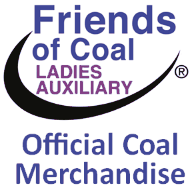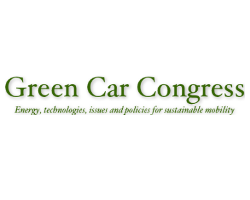
 











|
Signature Sponsor


March 3, 2023 - The Department of Energy (DOE) is funding six research and development projects that will repurpose domestic coal resources for high-value graphitic products and carbon-metal composites that can be employed in clean energy technologies. Ohio University’s Institute for Sustainable Energy and the Environment was awarded two of the six awards, one that explores how coal waste can be reimagined as energy storage and the second aims to develop ultra-conductive carbon metal composite wire for electric motors. The DOE awarded $999,976 to support the first project, which will focus on developing electrochemical processes to convert coal-based materials to two-dimensional carbon materials for supercapacitor applications. The project is led by principal investigator John Staser, associate professor of chemical and biomolecular engineering. Additionally, OHIO faculty members Jason Trembly, professor of mechanical engineering and director of the Institute for Sustainable Energy and the Environment, and Damilola Daramola, assistant professor of chemical and biomolecular engineering, will support this project, alongside industry partners CFOAM LLC and Capacitech Energy. The project aims to develop advanced processes, called the electrochemical coal to 2-dimensional materials (e-Coal2D) process, to transform coal-based materials into new materials that enhance the capacity of electrochemical supercapacitors. CFOAM, one of the industry collaborators, has developed coal-derived materials that are used as the raw material to generate the final product. Then, Capacitech Energy, a leader in cable-based capacitors, will evaluate the two-dimensional materials in their systems. Coal’s unique structure and composition make it well-suited for use as a raw material for producing various high-value carbon products. The ultimate goal of this project is to continue to find ways to reimagine coal waste to reduce greenhouse gas emissions and create jobs. Understanding ultra-conductive carbon metal composite wire for electric motors. Led by principal investigator Yahya Al-Majali, assistant professor of mechanical engineering and assistant director of the Institute for Sustainable Energy and the Environment, this project aims to develop cost-effective carbon metal composites with enhanced bulk electrical properties for use in electric motors. Using materials derived from coal waste, specifically nano-graphite and graphene, carbon metal composites will be created using novel metal forming processes. The performance of the finished material, which will take the form of an ultra-conductive wire, will then be tested and quantified to ensure readiness for real-world applications. The wire is intended to be used in electric motor applications, which further supports technology to ultimately reduce greenhouse gas emissions. The award from the DOE totals $1 million with a $250,000 cost share. Industry partners include MetalKraft Technologies LLC, Fisk Alloy Inc., CONSOL Innovations, Hydro Precision Tubing North America, AmeriCarbon LLC, SP2 Carbon Technology Co and Clear Skies Consulting LLC. Additionally, a team of OHIO researchers will support this project, including Jason Trembly and David Drabold, distinguished professor of physics. Development of the carbon metal composite wire will not only reimagine use for coal waste, but its application will offer key environmental and economic advantages. This technology will reduce carbon dioxide emissions, improve electric vehicle efficiency and create new manufacturing jobs for coal communities. Introducing coal-derived graphitic carbons into electrical wire could significantly reduce American energy consumption, preventing up to 14 million tons of carbon dioxide emissions, and saving consumers $4.3 billion annually if just 20% of alternating current (AC) motors use ultra-conductive wire. |
 










|